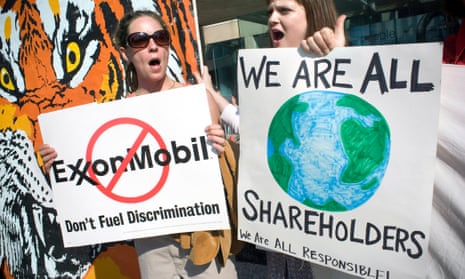People often talk of capitalism, and of plans to reform or replace it. But we seldom ask who are the capitalists, on whose behalf the system is supposedly run.
If we did, the answer might surprise us. I would bet that most of the people reading this article who are over 30 also ultimately own shares in the giant transnational companies that sit at the heart of the capitalist system.
That is not the way the situation is usually portrayed. Often, we assume that those who own our leading companies are the super rich. And indeed if you look at the share registers of those companies, you will, on occasion, find their names. But the overwhelming majority of shares are held by institutional investors, such as BlackRock, L&G, Aviva and Vanguard.
The funds these institutions invest do not belong to them. It is money that you and I have set aside to pay for our pension, or some other future contingency, and which we have given to the institution to manage on our behalf. It is on our behalf that these shares were purchased, it is on our behalf that the powers that those shares confer should be used. Therefore, in a real sense, we are the capitalists. And so, in theory, when a chief executive says their company aims to generate value for its shareholders, that should mean value for us.
That may seem fanciful. Millions people in the UK hold private or workplace pensions that will be invested in shares of companies from all over the world, just as British companies are owned by global investors. Indeed, some years ago, one large British company tried to calculate how many people benefited when it paid a dividend. It went through its shareholder register, from fund manager to beneficiary, and reckoned there were over 200 million.
If we could ever get capitalist companies to behave as though their owners were hundreds of millions of “citizen investors” that would create some profound opportunities, but also challenges.
Our hidden power
The opportunity comes from the power that those shares confer. In Britain, for example, every director of a large quoted company, (that is one listed on the stock exchange), will be re-elected annually by their shareholders, on a one-share-one-vote basis. Their remuneration package requires shareholder approval, as does the appointment of the auditor. So the next time you hear news that a chief executive has been given an outrageous salary, remember that it was most likely your shares that approved the award.
In the public sphere we treat voting and political participation very seriously because it influences the action of the government. The same could be true in the private sphere. But that opportunity is largely ignored. Indeed it is a tragedy of civil society that those who would arise from their sickbed to cast their democratic vote in an election do not even know what companies they are invested in, and how the shares have been used to influence behaviour.
As in the public sphere, the exercise of rights brings challenges. First there are practical ones. A pension fund may well have hundreds of thousands of beneficiaries, and be invested in thousands of companies around the world, each with hundreds of shareholders. But just as in political life, we have created political parties and other organisations to make the system practical, so, over the past 20 years, voting and influence have been made practical, through advisory agencies such as ISS and PIRC. Pension funds have developed ways to collaborate – for example, through Hermes Equity Ownership Service. Campaigning groups, such as ShareAction, lobby fund managers in much the same way that NGOs lobby MPs.
But all these initiatives are tiny in comparison with the opportunity because there is, as yet, little recognition of the influence that we, the citizen investors, might bring to bear. If a fund manager receives more than a couple of emails asking them to intervene in a company whose shares they manage, that will be a lot. Most people don’t feel like “citizen owners”, so they don’t behave like them
If we could raise that citizen voice, it offers a huge opportunity to steer our capitalist institutions in a socially responsible direction. But it also presents a challenge. Because the reason our pensions are invested in these companies is because they make a profit. In that context, we can’t simply rail against profits, and condemn any institution that has a profit goal. We need to engage in the difficult trade-off that companies need to make. We need to take seriously the question of what “responsible capitalism” might mean.
That might be the framework within which we think about the reform of capitalism. If we are the capitalists, what do we want from the system? And how can we nurture and support the institutions that can give us voice?
- David Pitt-Watson’s book What they do with our Money: What is wrong with the financial system and how to fix it will be published by Yale University Press next year. David will be speaking as part of Murray Edwards College’s Capitalism on the Edge series at the University of Cambridge on 19 November.
